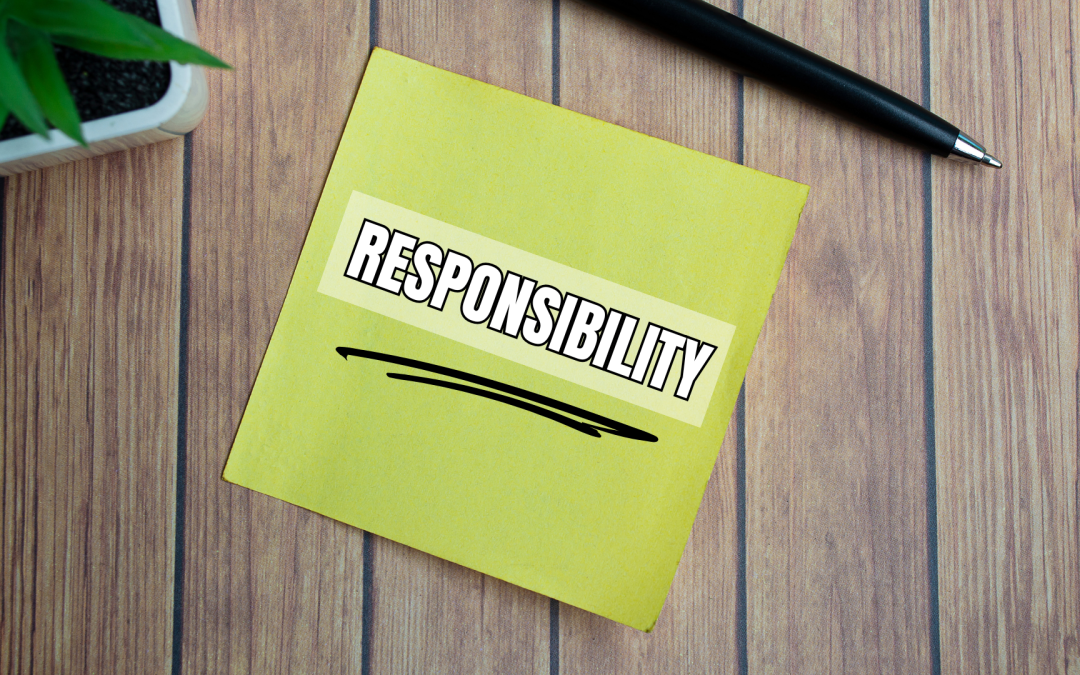Victoria was the person everyone relied on at work. If a deadline was in jeopardy, she stepped in. If a team member was struggling, she picked up the slack. She prided herself on being dependable, always delivering on promises, and ensuring everything ran smoothly. But over time, the weight of that constant responsibility became overwhelming. She was exhausted, frustrated, and, despite her dedication, felt wholly underappreciated. The very strength that made her indispensable was also becoming her greatest challenge. Can you relate?
If you’re someone who takes ownership of tasks, always follows through on commitments, and feels a deep personal obligation to do what’s right, you might have the Responsibility strength high in your Clifton Strengths profile. People with this talent are the reliable backbone of any team—trusted, dependable, and known for their unwavering commitment to delivering results.
But with great responsibility comes great pressure. While this strength fuels integrity and trustworthiness, it also carries hidden challenges that can lead to burnout, resentment, and an overwhelming sense of guilt when things don’t go as planned. Learning to navigate these blind spots is essential for maintaining balance and sustainable success.
The Blind Spots of Responsibility
Overcommitting and Struggling to Say No
Those high in Responsibility often feel personally accountable for everything they take on. This makes them natural go-to people for extra tasks, but it can also lead to an overloaded plate. Saying “no” can feel like letting people down, even when the workload is unsustainable.
How to Overcome It:
- Before accepting a new commitment, pause and assess your current workload.
Having a work register or a way to track your current workload and responsibilities is key here, as you will be able to check – at a glance – what your capacity is. - Practice setting boundaries with the people around you.
Saying “no” when someone asks for your help will not feel natural, so instead practice saying, “I’d love to help, but I need to ensure I can deliver on my current commitments first.” Or “Yes I can absolutely help, but I won’t have capacity until *insert day/date*”. - Remember that saying no to one thing means saying yes to something else—like your well-being.
People high in responsibility generally find they put themselves last on their list of priorities, but to continue delivering and supporting those around you, you need to be at your best. Remember that self-care is not selfish, but a way to make sure you can show up for the people that rely on you.
Taking on Others’ Problems as Your Own
With a strong sense of duty, Responsibility-driven individuals often feel the weight of not just their own obligations but also those of their colleagues, friends, or family members. They may step in to fix problems that aren’t truly theirs to solve, leading to unnecessary stress.
How to Overcome It:
- Ask yourself: “Is this truly my responsibility, or am I just assuming ownership?”.
Instead of doing the work for them, or adding tasks to your workload because no one else will do it as good as you could – you might find that more often than not, you can actually turn a team member’s challenge into a learning opportunity for them. Maybe you spend 15 minutes talking through the problem with them and coaching them to find the answer for themselves. Or maybe you give them a brief run-down of how you would approach the task and let them have a go at it themselves before coming to you with questions. This way, instead of adding to your workload (other than the short time it takes to coach them), you are actively upskilling and growing those around you – so in the end, they can navigate their own challenges with confidence.
Difficulty Delegating Tasks
People with the Responsibility strength often feel that if they want something done right, they have to do it themselves. This can lead to a reluctance to delegate, resulting in inefficiency and potential burnout.
How to Overcome It:
- Shift your mindset from “I need to do this” to “I need to ensure this gets done well.”
Upskilling and growing those around you will allow you to build a strong, confident and self-sufficient team. If someone doesn’t know how to do something, go back to #2 suggestions on coaching through challenges. - Remind yourself that delegation isn’t a sign of weakness; it’s a skill that strengthens teams.
If you don’t want to feel like you’re the only one holding a workplace or team together, or the only one willing to put in extra, then building the abilities of those around you is an absolute must. It may feel like it takes more time in the short-term to coach or teach others how to do things as well as you do, but you will see a huge change in the long-term and realise how worth it that it was, not only for the team, but for your own workload and wellbeing.
Internalising Failure and Guilt
When something goes wrong—whether it’s within their control or not—those with high Responsibility may blame themselves. This sense of guilt can weigh heavily, even when circumstances were beyond their influence.
How to Overcome It:
- Separate what you can control from what you cannot.
When faced with a setback, take a moment to assess whether the outcome was truly within your control. If it wasn’t, remind yourself that not everything is your responsibility to fix. The locus of control model can be helpful here in reminding you of the things you CAN control when a challenge arises (hot tip: it’s you, your thoughts and your emotions). - Reframe setbacks as learning experiences rather than personal failures.
Instead of seeing mistakes as evidence of inadequacy, view them as opportunities for growth. Ask yourself, “What can I learn from this?” or “what didn’t we do that we should do next time?”. Not every challenge or setback is a bad thing, and shifting your mindset can help you navigate tricky times.
Turning Blind Spots into Strengths
The Responsibility strength is a powerful force for good—it fosters trust, accountability, and high ethical standards. But to maximise its impact without self-sacrificing, it’s important to recognise and address the blind spots that come with it. By setting boundaries, delegating effectively, and releasing unnecessary guilt, those with Responsibility can continue to lead with integrity while maintaining balance and well-being.
Being responsible doesn’t mean doing everything alone—it means knowing when to step up and when to step back. True leadership isn’t just about taking ownership; it’s about empowering others to do the same.
About Alexandra Heaney
Certified Clifton Strengths Coach, Resilience Coach & Associate Consultant
Alexandra (Al) is a Gippsland-based Clifton Strengths Coach, Resilience Coach and Associate Consultant for Tanya Heaney-Voogt.
Passionate about creating positive workplace change and improving workplace culture, Al has a rich history to draw from to achieve these goals.

With a career spanning 5 years as a Psychiatric Nurse at the Alfred Hospital Acute Inpatient Unit, 2 Years of Studying Psychological Science, and a current degree in progress in Counselling, human behaviour and positive psychology have always been concepts she is passionate about.
Her ability to integrate this knowledge into meaningful and insightful discussion regarding the Clifton Strengths assessment and general workplace challenges makes her a proficient guide for coaching clients.
Al is adept at empowering others to pursue their objectives by consciously harnessing their innate talents and strengths.
In her spare time, Alex is also a passionate reader and film enthusiast, and enjoys spending time with her partner Kevin and their fur baby (puppy) Homer.
If you’d like to learn more about your Strengths or find out more about Al’s coaching and consulting services; email Al for more information at:


Recent Comments